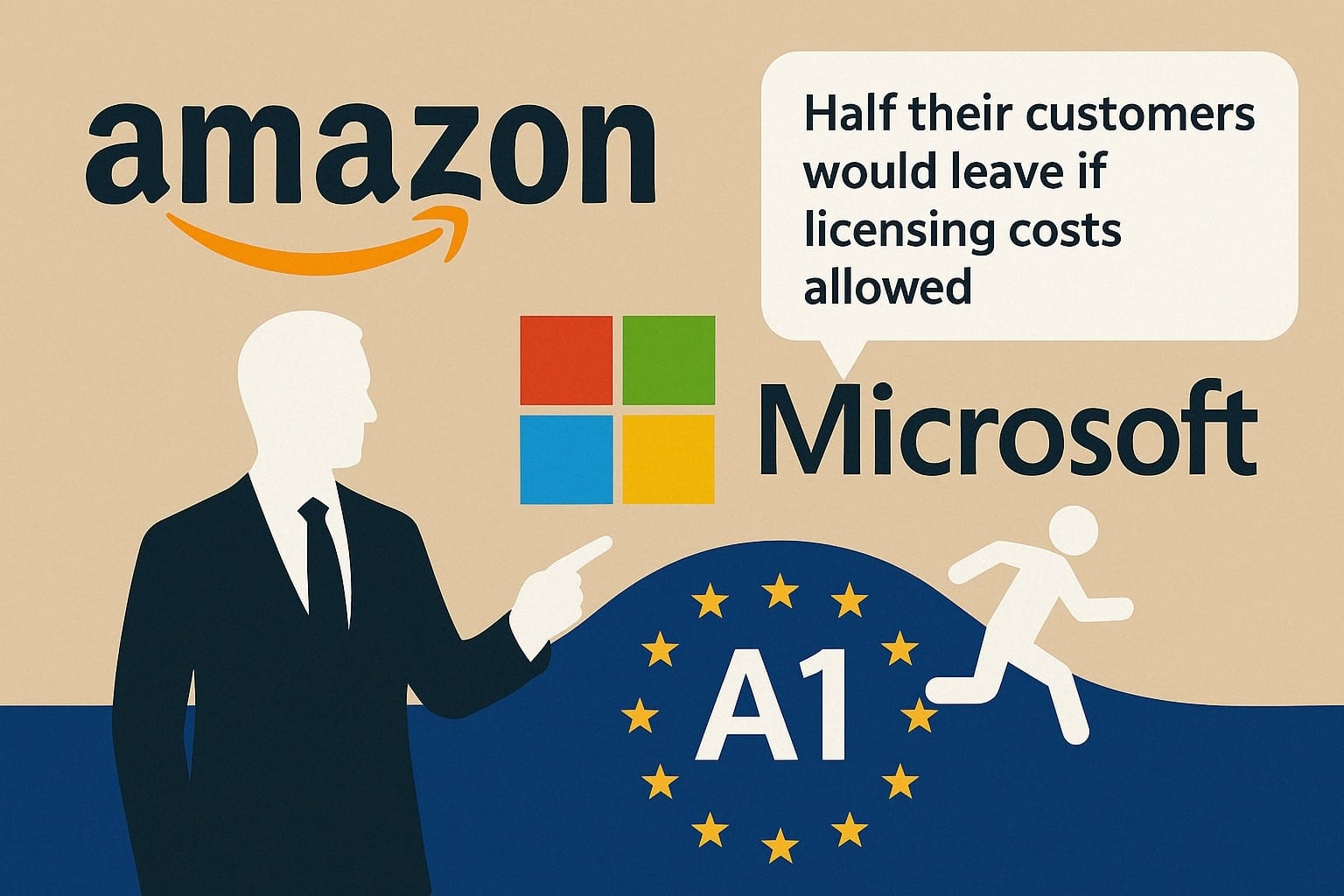The dispute over cloud market dominance in the UK is intensifying as the CMA examines entry barriers and the use of licensing to maintain a dominant position.
The battle for leadership in cloud services has taken a new turn. As part of the investigation conducted by the UK’s Competition and Markets Authority (CMA), Amazon Web Services (AWS) has launched a harsh critique of Microsoft, accusing it of employing licensing practices that “lock” customers into Azure. According to AWS, approximately 50% of the workloads currently on Azure would migrate to other providers if licensing costs were not so restrictive.
These statements are included in the official responses that AWS, Microsoft, and Google have submitted to the CMA as part of its investigation initiated in October 2023 into possible negative effects on competition in the UK cloud market.
AWS: “Microsoft inhibits fair competition”
AWS has not hesitated to directly point out the economic barriers that Microsoft imposes through its licenses, which, it argues, make it unfeasible for many customers to run Microsoft software outside of Azure. While AWS claims to have customers running Microsoft workloads on its platform, many more do so on Azure due to cost differences.
The Jeff Bezos-led company also denied that there is a lack of competition in the sector, even arguing that its market share has dropped significantly in recent years and stressing that true competition also comes from a return to on-premise solutions. “We do not impose technical barriers that prevent migration or multicloud use,” AWS asserts, stating that it has invested in tools that facilitate switching between providers.
Regarding artificial intelligence, AWS downplayed the notion of a specific market for high-performance AI computing. “AI is simply computing, storage, and networking,” it stated, arguing that its development is intensifying competition and could even facilitate switching between providers.
Microsoft: “The market is dynamic and competitive”
For its part, Microsoft strongly denies there is a competition problem, emphasizing that both AWS and Google are well-positioned to compete in AI and that regulatory intervention could harm a market that is still evolving. It has also questioned why the CMA excluded Google from the designation of “strategic market status” (SMS), asserting that both Google and Amazon have comparable margins and levels of investment to its own.
Furthermore, it described the CMA’s provisional findings on licensing as “vague,” stating that they do not clearly specify which workloads are affected, and denied that its practices prevent its rivals from competing effectively.
Google aligns with AWS and accuses Microsoft of abusing market dominance
Google has been blunt: Microsoft and AWS have significant market power in the UK and, without changes, Microsoft could dominate the European cloud market in the next five years. The Alphabet company has reported that Microsoft is leveraging its software dominance to gain unfair advantages in the cloud market, harming consumers and competition.
Additionally, Google supported the provisional measures proposed by the CMA, particularly regarding licensing, and suggested limiting the removal of egress fees for AWS and Microsoft to not destabilize smaller providers.
A resolution expected to have a significant impact
The CMA’s final resolution could have profound implications for Microsoft’s cloud business model, particularly in its cross-licensing strategy. Both Google and AWS are pushing for the prohibition of practices that limit portability and multicloud use, thus opening the market to fairer competition.
The UK case thus becomes a mirror for the rest of Europe and the world, where increasing voices are calling for regulatory interventions to curb the power of tech giants in the cloud computing arena.
source: DCD

